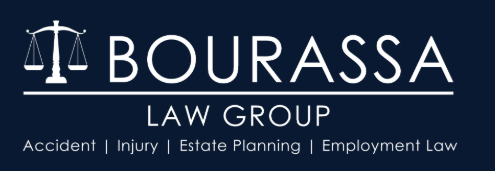
Property management laws have always been a matter of great concern for property owners. These laws vary from state to state, making it harder for property management professionals to keep up with them. This is particularly true if you start comparing the Nevada property management laws vs other states.
Nevada real estate division isn’t just about another itemized list that make the real estate activity simple. While providing habitable condition is a basic responsibility and right among the landlord and tenants respectively, there’s more.
Managing rental properties in Las Vegas comes with various responsibilities and legal requirements. From licensing regulations to tenant rights, understanding Nevada’s property management laws is essential for smooth operations and avoiding legal complications.
This guide will provide a detailed overview of the laws and regulations property managers and landlords must follow.

Licensing and Registration Requirements
The first step for the best course of action is understanding the legal requirements set by Nevada law. Therefore, here are some basics that you must always know.
Nevada Real Estate Broker License Requirements for Property Managers
In Nevada, property managers must adhere to specific licensing requirements to operate legally:
- Real Estate Broker’s License: Property managers must hold a real estate broker’s license or work under someone who has one.
- Property Manager Permit: If a property manager is involved in leasing, renting, listing, or negotiating rental agreements, they must obtain a property manager permit.
- Exceptions:
- On-site managers who do not engage in leasing activities do not need a broker’s license.
- Managers who solely handle administrative tasks are exempt from licensing requirements.
Obtaining the proper licenses and permits ensures compliance with Nevada law and builds trust with clients and tenants.

Landlord-Tenant Laws and Rights
Nevada Landlord-Tenant Rental Laws
Nevada’s landlord-tenant laws are designed to protect both parties and establish clear guidelines for rental agreements.
- Essential Knowledge: Both landlords and tenants should familiarize themselves with these laws to avoid potential disputes.
- Rent Payments: Landlords can collect rent as specified in the lease agreement.
- Security Deposits: These can be used to cover damages beyond normal wear and tear. However, landlords must return any unused portion within 30 days after the lease ends.
Following state laws not only protects landlords’ investments but also ensures tenants’ rights are respected.
Rental Agreements and Leases: Essential Elements of a Rental Agreement
A solid rental agreement is the foundation of any landlord-tenant relationship. In Nevada, rental agreements must adhere to the Nevada Revised Statutes (Chapter 118A).
Key Components
- Lease Duration: Agreements over 12 months must be in writing.
- Payment Terms: Clearly state rent amounts, due dates, and acceptable payment methods.
- Security Deposit Details: Include the amount, conditions for use, and refund timelines.
- Responsibilities: Specify maintenance duties for both the landlord and tenant.
Landlords may use oral agreements for leases shorter than 12 months, but written agreements are always recommended for legal clarity.

Tenant Rights and Protections
Tenant Protections in Nevada
Nevada law offers robust protections to tenants to ensure safe and fair living conditions.
- Habitable Properties: Landlords must provide housing that meets basic habitability standards, including working utilities, proper plumbing, and structural integrity.
- Repairs and Maintenance:
- Tenants can request repairs for damages or safety hazards.
- Landlords have 14 days to address non-emergency issues and 24 hours for emergencies.
- Withholding Rent: Tenants may legally withhold rent or make necessary repairs and deduct the cost if landlords fail to comply with repair requests.
These laws aim to create a balanced and respectful rental environment.

Property Management and Investment
How Rental Regulations Influence Property Investments
Rental laws in Nevada significantly impact property investments by influencing rental yields and overall profitability.
- Regulations and Profitability: Laws governing rent caps, tenant rights, and eviction procedures directly affect how investors manage their properties.
- Local Variations: In areas like Washoe County, specific rules can determine how landlords approach leasing and maintenance.
Understanding these laws is vital for investors to maximize returns while remaining compliant with state and local regulations.
Eviction and Lease Renewal
Eviction Procedures in Nevada
Evicting a tenant requires strict adherence to Nevada’s legal procedures to avoid complications.
- Notice Requirements:
- For nonpayment of rent, landlords must issue a 7-day notice to pay rent or quit.
- For lease violations, landlords may issue a 5-day notice to cure or quit.
However, the tenants might sue the landlord for entering without notice if they do not meet these requirements. It’s best to check the legal details before taking further action. Similarly, the landlord might also face legal action for wrongful evictions, depending on the situation
- Court Involvement: If the tenant does not comply with the notice, landlords can file for a formal eviction through the court system.
Following these steps ensures the process is lawful and minimizes disputes.

Nevada Property Management Laws Vs Other States
| No. | Aspect | Nevada (Las Vegas) | California | Texas | New York |
|---|---|---|---|---|---|
| 1 | Licensing Requirements | Property managers must have a real estate broker’s license or work under one. Property manager permit required. | Requires a real estate license to manage properties. No separate permit needed for property managers. | No real estate license required for property managers unless involved in leasing activities. | Requires a real estate license for property management and leasing activities. |
| 2 | Security Deposit Limits | Max of 3 months’ rent for furnished units and 2 months for unfurnished. | Cannot exceed 2 months’ rent for unfurnished units and 3 months for furnished units. | No state cap, but must be “reasonable.” | One month’s rent in most cases, unless special agreements are made. |
| 3 | Notice for Rent Increases | 30 days for month-to-month leases. | 30 days for month-to-month leases if rent increases by 10% or more; 60 days otherwise. | No specific state requirement; follow lease terms. | 30 days for month-to-month agreements; no rent increases allowed during a fixed-term lease. |
| 4 | Tenant Rights for Repairs | Tenants can request repairs; landlords must respond within 14 days (24 hours for emergencies). | Repairs must be completed in a “reasonable time,” typically 30 days for non-emergencies. | Landlords must repair within a “reasonable time” after notice, with no specific timeline. | Must address habitability |

Key Takeaways
- Nevada offers relatively landlord-friendly laws with minimal restrictions on rent control and flexible licensing requirements.
- California has stricter tenant protections and extensive habitability standards, making it less favorable for landlords.
- Texas provides flexibility for landlords but lacks specific deadlines for repairs and habitability enforcement.
- New York has extensive tenant protections, especially in rent-controlled and rent-stabilized units, and is considered tenant-friendly.
If you want to learn more aboht the NV property management regulations, we recommend reaching out to professionals for further advice.

Compliance and Resources
Staying Compliant with Nevada Property Management Laws
Staying up-to-date with Nevada’s property management laws is essential for landlords and property managers.
- Legal Updates: Laws and regulations evolve over time. Regularly review the Nevada Revised Statutes and local ordinances.
- Professional Advice: Consulting with a real estate attorney or legal expert ensures compliance and helps resolve complex issues.
By staying informed, property managers can protect their investments and maintain positive relationships with tenants.

Frequently Asked Questions
1. What changes have been introduced in Nevada rental laws?
Recent updates include revised tenant rights for repairs and adjusted regulations for lease renewals and terminations.
2. How does Nevada law define normal wear and tear?
Normal wear and tear refer to the expected deterioration of a property over time, such as faded paint or worn carpets, which cannot be deducted from the security deposit.
3. What are tenants’ rights regarding repairs in Nevada?
Tenants can request repairs for safety hazards or damages. Landlords must respond within 14 days for non-emergency issues or 24 hours for emergencies.
Final Thoughts
Understanding Las Vegas property management laws is critical for successful property management. Whether you’re a landlord, property manager, or tenant, staying informed ensures compliance and fosters a positive rental experience.
Key Takeaways
- Obtain proper licensing and permits to manage properties legally.
- Draft comprehensive rental agreements that define roles and responsibilities.
- Adhere to tenant rights and property maintenance standards.
- Stay updated on legal changes to protect your investments.
However, if you feel like you still need some legal advice and guidance, we can help you with it.

Bourassa Law Group For You
Our experts at Bourassa Law Group know the fair housing laws well and can help you with such natters. It doesn’t matter if it’s a lease termination or an unpaid rent situation. We can also help you with landlord harassment, an eviction lawsuit, eviction notice and even he general eviction process.
Our legal counsel can guide you regarding Nevada property management laws vs other states. We can also guide regarding late fee matters and bring the parties involved to an agreement. We are sure that our help will surety bond wrongdoers in case of code violations. So, take legal action with us.





